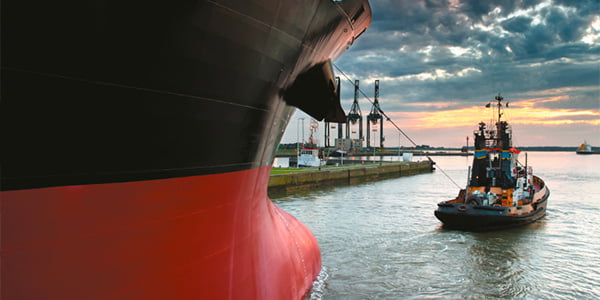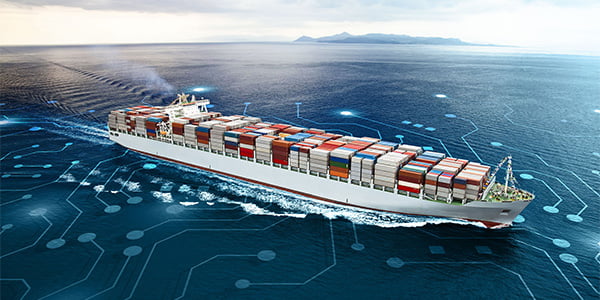Marine CCTV & FLIR Systems
Comprehensive Surveillance Solutions for
Enhanced Security and Operational Oversight
Get a quote todayDefinition & Benefits
Marine CCTV (Closed-Circuit Television) systems are specialised surveillance networks engineered to withstand the harsh maritime environment. By strategically deploying marine-grade cameras, recording units, and management software, these systems deliver:
- Deterrence & Incident Prevention – Visible cameras discourage theft, vandalism, and unauthorised boarding.
- Enhanced Safety Monitoring – Continuous oversight of high-risk areas (engine rooms, cargo holds, deck operations) enables rapid intervention during emergencies.
- Operational Insights – Real-time and recorded footage supports cargo handling efficiency, maintenance verification, and bridge-wing monitoring.
- Regulatory Support – Video evidence aids in investigations, insurance claims, and compliance with safety and pollution-prevention regulations.
FLIR (Forward‑Looking Infrared) Cameras augment traditional CCTV by detecting thermal radiation rather than visible light. Key benefits include:
- Zero‑Light Vision – Ability to “see” in complete darkness, fog or smoke, crucial for night‑time navigational watches and man‑overboard detection.
- Non‑Contact Temperature Measurement – Surface‑temperature readings for early identification of overheating machinery or electrical faults.
- Enhanced Detection – Identification of hidden intruders, wildlife or debris in low‑visibility conditions.

Installation & Integration
Site Survey & Equipment Selection: Map critical zones for both visible‑light and thermal coverage (e.g. deck perimeters, engine spaces, lifeboat stations). Specify camera types: marine‑grade fixed, varifocal, PTZ, 360° panoramic and thermal‑imaging units.
Mountings & Enclosures: IP66–IP68 stainless‑steel or epoxy‑coated housings for harsh‑sea environments. Vibration‑dampening mounts to ensure image stability, especially on high‑speed or heavy‑weather passages.
Wiring & Power Provisioning: Marine‑certified PoE cabling with UV‑ and saltwater resistance; waterproof connectors and sealants. Emergency‑power integration for uninterrupted operation of CCTV, FLIR cameras, EPIRBs and SARTs.
Network Configuration & Cybersecurity: VLAN segmentation to isolate surveillance traffic. AES‑encrypted VPN tunnels for secure remote access to live and archived footage. Integration with shipboard alarm and access‑control systems for automated event triggers.
Technical Performance
Marine CCTV and FLIR systems deliver reliable, high-quality surveillance under all conditions:
|
Feature |
CCTV Systems |
FLIR Cameras |
|
Resolution |
1080p HD standard; optional 4K for detailed inspections |
Thermal resolution up to 640×480 px |
|
Light Handling |
IR‑illuminated for low‑light operation |
Zero‑light performance in total darkness |
|
Field of View |
Fixed, varifocal, PTZ, 360° panoramic |
Fixed‑focus thermal lenses (wide/narrow) |
|
Temperature Range |
–30 °C to +60 °C |
–20 °C to +550 °C measurement capability |
|
Recording & Storage |
H.264/H.265 compression; NVR or cloud archiving |
Embedded recording or NVR integration |
|
Environmental Rating |
IP66–IP68, salt spray and UV resistant |
IP67–IP68, marine‑grade thermal housings |
Cost Expectations
System investment varies by vessel size, camera count, and feature set. To ensure an optimal balance between security, data retention, and budget, get a tailored quote that reflects your specific requirements.
Ensure the optimal balance between security, reliability, and cost.
Use Cases
- Commercial Shipping – Monitor cargo operations, gangway access, and engine room safety.
- Luxury Yachts – Discreet guest-area surveillance, tender-launch oversight, and remote-viewing capabilities for owners.
- Offshore Platforms – Perimeter security, equipment-area monitoring, and man-overboard detection.
- Fishing Vessels – Deck operations monitoring, catch-handling verification, and crew-safety alerts.
- Research Ships – Scientific equipment deployment, recording and habitat-observation feeds.
- Search & Rescue – Combine low‑light CCTV and FLIR to swiftly locate persons in the water.

Regulatory & Compliancce
Safety & Pollution Investigations – Video logs support SOLAS, MARPOL, and port-state control inquiries.
Data Privacy – GDPR-compliant storage policies and access control for crew and passenger areas.
Certification – Components compliant with IEC 60945 and DNV-type approvals for marine electronics.
FAQS
What IP rating is required for marine CCTV and FLIR?
Cameras should be at least IP66 for protection against high‑pressure jets; IP67 or IP68 is recommended for immersion and prolonged sea spray.
How much storage do I need?
A 1080p CCTV camera at 15 fps uses roughly 60 GB per month. Thermal camera footage at 10 fps typically requires 30 GB per month. Plan NVR or cloud capacity accordingly.
Can CCTV and FLIR integrate with ship alarms?
Yes. Modern VMS platforms allow alarm‑event triggers (e.g. motion detectors or temperature thresholds) to keynote camera focus and recording.
How often should systems be serviced?
Annual inspections of housings, cabling and firmware. Monthly thermal‑sensor recalibrations for FLIR and quarterly lens cleaning in high‑spray zones.